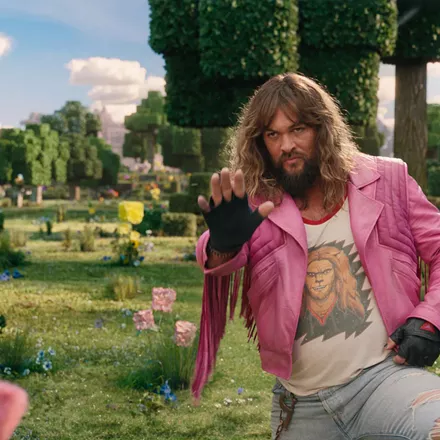
- 24 Films
- Stanley Tucci and Emma Thompson in The Children Act
What kind of movie isThe Children Act, anyway? It's not a courtroom drama, even if it does revolve around a legal battle to allow a London hospital to administer a life-saving blood transfusion to an underage patient, whose Jehovah's Witness parents are refusing permission because they oppose such treatment as matter of faith. (The title refers to a 1989 British law pertaining to the welfare of children.) It's not a reckoning with religion in a secular age, or with antiscientific beliefs that are downright deadly; it invokes such notions, but leaves them mostly unexplored, and leaves poor Ben Chaplin, as the devout father, dangling after an impassioned defense of his beliefs. It's not even exactly a story about a troubled marriage, though it does feature the always marvelous Stanley Tucci walking out on his wife—the case's work-obsessed judge, Fiona Maye (Emma Thompson)—because she emotionally walked out of the marriage years ago.
The closestThe Children Actcomes to a coherent kind of tale is as a character study of Fiona. By some minor miracle, director Richard Eyre (Notes on a Scandal) manages to give us a portrait of a messed-up woman without making it feel like a judgment on herasa woman, nor does the film seem to make sweeping judgments about women in general, either. Thompson's palpable empathy for Fiona, and her ability to subtly convey that to us, with oceans of confused and conflicted emotion roiling just under her placid surface, makes her not only beautifully real but specificallyindividual.
Yes, this is yet another movie about a workaholic professional woman who cannot cope with it all, one that fails to even acknowledge that for women, achieving a comfortable balance between career and personal life comes with many more obstacles than for our male peers. Butat least it's not a film that condemns women—or even this one woman—for daring to do a man's job, or for not being emotional "enough," or for failing to perform femininity better, which is so often the undercurrent of movies like this one. So that is no small thing. And kudos, too, to the film for giving Fiona a male law clerk (the lovely Jason Watkins) who is ultra-attentive to her needs in a way that will be seen as traditionally feminine—he brings her biscuits and coffee, he mends her courtroom wig, he's gentle and solicitous of her moods and weathers her tantrums with dignified aplomb.
But this character study is nevertheless a frustratingly random and disorderly one, in spite of Thompson's tremendous efforts. (She's the only reason to see this movie, though she's enough.) It's simply never clear what The Children Act is trying to say about her as a person, or as an adjudicator of weighty matters. Is she too rigid to be humane in her judgments? Are her personal problems at home impacting her ability to be impartial? Is she, in fact, actually not that bothered about her husband leaving? Why does the film refrain from helping us appreciate just how radical and unusual it is for Fiona to visit the Jehovah's Witness boy (Fionn Whitehead) in the hospital? Apparently this is not a thing a judge in Fiona's situation would ever do, but we never understand why she deviated from standard practice, or what it means for her to have to done so.
Ian McEwan adapted his own novel for the screen here, and that is rarely a good idea: a bit of distance from the material is needed, as well as a bit of ruthlessness in deciding what belongs onscreen and what doesn't. Things that work on the page don't necessarily translate to cinema. I haven't read the book, so perhaps the book doesn't work, either, but McEwan's self-adapted On Chesil Beachsuffers from similar issues. The script is constantly picking up ideas, emotions and even entire plot tangents—a stalking sub-plot pops up at one point—only to turn them over once or twice and then discard them as uninteresting, or in the mistaken belief that it has said all it wants to say about them. But whateverThe Children Actthinks it's about, I cannot fathom.




